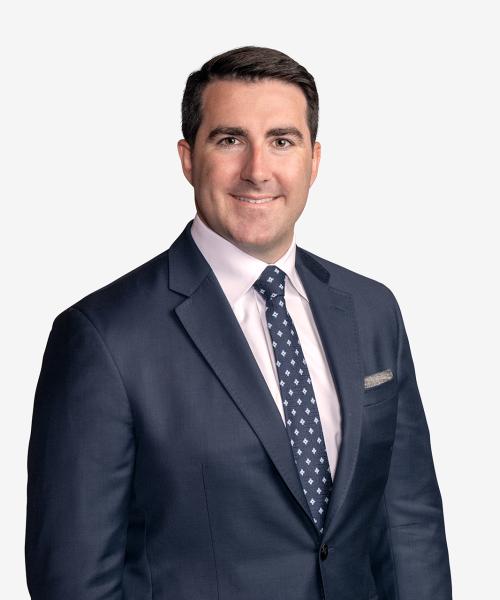Friday Enforcement Wrap: Medical Device Manufacturer and Parent Company Pay $30.9 Million to Resolve FCA Claims
DOJ News
Medical Device Manufacturer and Parent Company Pay $30.9 Million to Resolve FCA Claims
Medical device manufacturer ev3 will plead guilty to misdemeanor charges relating to its distribution of a neurovascular device approved by the FDA only for use inside the brain. According to the plea agreement, from 2005 and 2009, ev3 marketed the device for use outside the brain, even after the FDA told company executives that it had safety concerns regarding such uses. Separately, Covidien LP, which shares a parent company with ev3, paid $13 million to resolve civil FCA allegations relating to alleged kickbacks in return for use of its Solitaire medical thrombectomy device.
Read the DOJ press release here.
Anti-kickback Allegations Relating to Physician Speaking Fees Result in $1.87 Million Settlement
LivaNova USA, Inc., a medical device manufacturer formerly known as Cyberonics, Inc., settled a False Claims Act matter for $1.87 million. DOJ and the State of Georgia alleged that the company paid Georgia physicians speaking fees for sham events in return for referrals for surgical implantation of LivaNova’s device for treating refractory epilepsy. A former employee of the company filed the qui tam lawsuit in the Northern District of Georgia.
Read the DOJ press release here.
Law Firm Pays $6 Million to Resolve FCA Lawsuit Relating to Inflated Bills
New York law firm Rosicki, Rosicki, & Associates, P.C. settled a False Claims Act lawsuit alleging that the firm generated false and inflated bills for foreclosure-related and eviction-related expenses. Between 2009 and 2018, the firm, among other inflation methods, added unsupported charges to costs charged by independent contractors, knowing that the expenses would be submitted for reimbursement. The settlement requires the law firm to pay $6.1 million to resolve claims asserted by a whistleblower and to implement a compliance program with a 5-year reporting requirement.
Read the DOJ press release here.
Home Health Services Providers Plead Guilty to $8.6 Million Health Care Fraud Scheme
A Florida owner and operator of a home health service and a massage therapist plead guilty to conspiracy to commit health care fraud. The owner admitted that he paid kickbacks and bribes to co-conspirators in exchange for referrals. As part of her guilty plea, the massage therapist admitted to providing physical and occupational therapy services to Medicare beneficiaries without a license. The conduct resulted in payments of $8.6 million from Medicare to the two conspirators.
Read the DOJ press release here.
Provider Pleads Guilty to Falsifying Timesheets
A home healthcare worker from St. Louis, Missouri plead guilty to conspiracy charges relating to the submission of false timesheets to Medicaid. The defendant admitted that between 2013 and 2017, his timesheets indicated he was caring for two women in their homes, but he was actually working another job or taking trips to California, New Jersey, the Virgin Islands, and even vacationing on a Caribbean cruise. Five other co-defendants have also plead guilty in connection with the conspiracy.
Read the DOJ press release here.
Former Insys Therapeutics Officer Pleads Guilty to Opioid RICO Conspiracy; Expected to Cooperate
On November 28, a former Vice President of Sales for Insys Therapeutics pleaded guilty in federal district court in Boston to one count of racketeering conspiracy, in connection with a scheme to bribe providers to unnecessarily prescribe a fentanyl-based pain medication and defraud health insurers. As part of the scheme, the defendant and his co-conspirators allegedly used the Insys Speaker Program as a vehicle to bribe doctors in exchange for prescriptions, and also placed certain personnel connected to the prescribers on the Insys payroll. Insys founder and former executive chairman John Kapoor and five other executives and managers are scheduled for trial in January 2019. The defendant is expected to cooperate with the government and could even be a witness at trial.
Read the DOJ press release here.
Former Venezuelan Official Sentenced Ten Years for $1 Billion Bribery and Money Laundering Scheme
On November 27, a former Venezuelan national treasurer was sentenced by a federal court in Florida to ten years in prison for his role in a billion-dollar currency exchange and money laundering scheme. The defendant pleaded guilty under seal in December 2017 to conspiracy to commit money laundering, and admitted that he received more than $1 billion in bribes, including cash, private jets, yachts, cars, homes, horses, and high-end watches from co-conspirators in exchange for his selecting them to conduct currency transactions at favorable rates for the Venezuelan government. Earlier this month, on November 19, the court also unsealed charges against a Venezuelan billionaire who owns the Globovision news network for his role in the scheme.
Read the DOJ press release here.
Read the earlier DOJ press release announcing the charges here.
Investment Company Executive Convicted of Running $1.5 Billion Ponzi Scheme
On November 27, the former president and CEO of an investment and medical-collections company, MRI International Inc., was convicted for his role in running a $1.5 billion Ponzi Scheme. Following a five-week federal jury trial in Nevada, and after only three hours of deliberation, the jury convicted the defendant of eight counts of mail fraud, nine counts of wire fraud, and three counts of money laundering. The government presented evidence that the defendant fraudulently solicited more than $1 billion in investments from more than 10,000 Japanese residents, but spent the majority of the funds on impermissible business and personal expenses, including a private jet, real estate, and luxury cars. Sentencing is scheduled for March 9, 2019.
Read the DOJ press release here.
Largest North Carolina Healthcare System Settles Antitrust Steering Suit with DOJ
On November 15, DOJ announced that it reached a settlement to resolve antitrust allegations against Atrium Health, formerly known as Carolinas HealthCare System, North Carolina’s largest nonprofit hospital network. The government alleged that Atrium, which had a net operating revenue of close to $10 billion in 2017, used its market power to restrict health insurers from encouraging consumers to choose providers that offer better overall value, and from providing consumers and employers with information regarding the cost and quality of alternative health benefit plans. If approved by the court, the settlement would prohibit Atrium from using anticompetitive steering restrictions in contracts between commercial health insurers and its hospitals, freestanding emergency departments, urgent care centers, and medical practices in North Carolina and South Carolina.
Read the DOJ press release here.
Hyundai Construction Company Fined $1.95 Million after Guilty Plea for Conspiring to Violate Clean Air Act
On November 14, Hyundai Construction Equipment Americas Inc., a former subsidiary of Hyundai Heavy Construction Equipment Co., pleaded guilty in federal court to conspiring to violate the Clean Air Act and defrauding the US government in connection with its import of diesel engines from the Republic of Korea. The company opted into a phase-in air-emissions program that allowed it to import a limited number of engines that did not comply with the new air-emissions standards, with associated reporting obligations to EPA. Despite warnings from a consultant, the company imported noncompliant engines beyond what it was allowed by EPA and intentionally understated to EPA the number of noncompliant engines it had imported from Korea. A federal court in Georgia fined the company $1.95 million as part of its sentence. The case was investigated by the EPA’s Criminal Investigation Division, and was prosecuted by the DOJ’s Environmental Crimes Section and the US Attorney’s Office for the Northern District of Georgia.
Read the DOJ press release here.
HHS-OIG News
OIG Advisory Opinion Finds Proposed Free-Drug Arrangement Implicates Anti-Kickback Statute
On November 16, OIG issued an advisory opinion indicating that a company’s proposal to provide free specialty drug products to hospitals to treat patients with a particular epilepsy condition could violate the Anti-Kickback Statute. Under the proposed arrangement, the hospital would submit a referral to the drug’s reimbursement hub and then dispense the drug to the patient. The reimbursement hub would complete a benefits investigation on the patient’s behalf and facilitate shipment of the drug to the patient’s caregiver to administer following discharge from the hospital. After discharge, if the caregiver is unable to obtain insurance coverage for the drug on behalf of the patient, the patient would receive the drug for free until the therapy is complete. The company would also inform the hospitals, prescribers, and patient caregivers that receipt of the free drug is not contingent on a future obligation to purchase the drug or other company products.
In concluding that the arrangement could violate the AKS, OIG reasoned that the free drug would be remuneration that the company would provide to hospitals that could serve as referral sources for the drug. OIG added that giving the hospitals free drugs could induce the hospitals to arrange for or recommend future purchases of the drug by including the drug on the hospital formulary. In an unusual step, OIG also noted certain “background information” about the company and its drug, including that the drug’s list price increased from $40 per vial in 2007 to $38,892 per vial in 2018, and that the drug “is not a new drug and has long been used to treat the” condition. OIG further noted that, in 2017, the company agreed to pay $100 million to settle FTC allegations of anticompetitive behavior. The requestor of the opinion was reportedly Mallinckrodt PLC and the drug is reportedly H.P. Acthar Gel.
Read OIG’s Advisory Opinion here.
Litigation Developments
DOJ Intends to Dismiss Closely-Watched FCA Case Pending Before SCOTUS
Last Friday afternoon, DOJ stated in an amicus brief filed in Gilead Sciences Inc. v. US ex rel. Campie, a closely-watched FCA case pending before the US Supreme Court, that if the Court remanded the case back to the Ninth Circuit, DOJ would move to dismiss the relator’s complaint because allowing the case to proceed “would impinge on agency decision making and discretion and would disserve the interests of the United States.” The Ninth Circuit previously revived the FCA claims holding that the two relators had sufficiently pleaded the falsity of the claims and the materiality requirement. In its petition for writ of certiorari, Gilead asked the Court to review whether an FCA claim fails where the government continued to approve and pay for drugs after learning that the manufacturer misrepresented that it obtained certain active ingredients from approved sources. DOJ sided with the Ninth Circuit’s analysis of materiality, but nonetheless stated that “based in part on the government’s thorough investigation of [the relators’] allegations and the merits thereof,” if the case went forward at the district court, it would seek dismissal. This is the first time that DOJ has expressed to the Supreme Court its intent to dismiss a case pursuant to 31 USC § 3730(c)(2)(A). See case number 17-936, in the Supreme Court of the United States.
Florida Magistrate Judge Rejects Express Certification Theory on Motion to Dismiss
US Magistrate Judge Alicia O. Valle held that the government failed to allege a valid FCA claim under an express certification theory because there were no allegations that the defendants falsely certified compliance with an applicable law or regulation, including the Anti-kickback statute, when submitting claims to Tricare. In US ex rel. Medrano and Lopez v. Diabetic Care Rx LLC dba Patient Care America et al., the government alleged that the defendant compounding pharmacy and its private equity fund owner engaged in a $68 million scheme to pay kickbacks to marketers who in turn recruited Tricare beneficiaries to ask their providers for medically unnecessary prescriptions for expensive, compounded drugs filled by the pharmacy. On the motion to dismiss, the Judge dismissed one count without prejudice and allowed the government an opportunity to amend. See case number 0:15-cv-62617, in the US District Court for the Southern District of Florida.
Supreme Court to Review Circuit Split Regarding False Claims Act’s Tolling-Provision
On November 16, the Supreme Court took up a circuit split regarding the applicability of the FCA’s statute-of-limitations tolling provision, 31 USC § 3731(b)(2), in cases where the government declined to intervene. The Court granted cert in United States ex rel. Hunt v. Cochise Consultancy, Inc., 887 F.3d 1081 (11th Cir. 2018), where the Eleventh Circuit held that the tolling provision was available to qui tam relators even if the government declined to intervene in the case, and that the tolling period began when the government—not the relator—had actual or constructive knowledge of the fraud allegations. We will continue to monitor the case while it’s pending at the Supreme Court.
Home Health Services Company Petitions Supreme Court to Hear False Claims Act Materiality Case Interpreting Escobar
On November 20, a Tennessee-based home health services company, Brookdale Senior Living Communities, Inc., asked the Supreme Court to review a Sixth Circuit decision regarding the FCA’s materiality and associated pleading requirements. The petition argues that the Sixth Circuit erroneously applied the Supreme Court’s decision in Universal Health Services, Inc. v. United States ex rel. Escobar, 136 S. Ct. 1989 (2016)—and thereby split with the First, Third, and Fourth Circuits—in failing to require the plaintiff to plead materiality and the defendant’s knowledge of materiality in the FCA complaint. We will continue to monitor the case.
Analysis You Can Use
The Latest from Our Client Alerts
HHS OIG Reports Expected Investigative Recoveries of $2.91 Billion in FY 2018
The Office of Inspector General for the Department of Health and Human Services recently published its Semiannual Report to Congress, for the period April 1 to September 30, 2018. The report highlights, among other things, OIG’s continued rigorous investigation of fraud and abuse perpetrated against federal health care programs.
Contacts
- Related Industries
- Related Practices
-
Read Time
10Minutes




